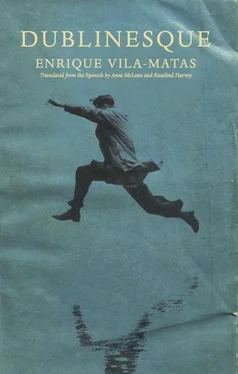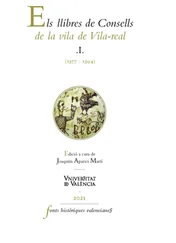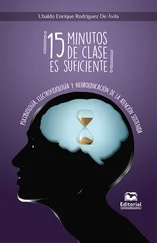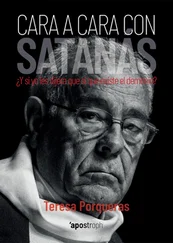The book speaks of the euphoria induced in Behan by this energetic city in which, as evening fell — probably the eve of his own life — it always became clear to him that in the end the only important thing to do is “to get something to eat and something to drink and someone to love you.” In terms of the book’s style, it could be summarized as follows: to write and to forget. The two verbs sound like an echo of the well-known relationship between drinking and forgetting. Behan himself used to say that he had decided this: “I will have forgotten this book long before you have paid your money for it.”
Although he was Irish, Behan was never an administrator, perhaps the exception to Vilém Vok’s rule that New York belongs to the Jews, is administered by the Irish, and enjoyed by the Negroes. Because the last thing Brendan Behan wanted was to have to administer anything in his beloved city. Maybe this is why the style in Brendan Behan’s New York is made up of opinions that are shots with no intention of reaching beyond that shot itself, of deliberately furtive volleys, judgments about, all the humans he had within his reach: blacks, the Scottish, waiters, homosexuals, Jews, taxi drivers, beggars, beatniks, bankers, Latinos, Chinese, and of course, the Irish, who went around the entire city in family clans keeping an eye on each other and creating their own culture; it’s as if this were just a ballad about their rainy native land.
Throughout New York , at no point does Behan forget the inspiration of his literary masters. “Shakespeare said pretty well everything, and what he left out, James Joyce put in.” For example, Behan’s way of approaching each of New York’s bars recalls Joyce’s Ulysses when the day is drawing to a close and the people and scenery around Stephen start to disappear from his sight, perhaps because the drinks he’s consumed over lunch and the intellectual excitement of the conversation in the library — actually trivial and stultifying — are gradually making them sometimes clearer or sometimes more blurred. In the same way, the bars of early sixties New York gradually appear in Behan’s book, with transparent or hazy alternative names according to the level of his private enthusiasm. And the names, like some fascinating and disquieting litany, fall one after the other, inexorable, Irish, legendary: McSorley’s Old Ale House, Ma O’Brien’s, Oasis, Costello’s, Kearney’s, Four Seasons, and the Metropole on Broadway, where the twist was born.
An essential and secular litany. Riba thinks that remembering Behan’s book has been a good way to continue preparing for his trip to Dublin, to move further away each day from the interior space that’s holding him hostage, and so slowly approach wider horizons. He devoured Behan’s book on the train from Lyon back to Barcelona, imagining many times that he was reading it at a table by the iron door of the amazing Oakland Bar, the one on the corner of Hicks and Atlantic from When You Wound Brooklyn , the beautiful novel by his young friend Nietzky.
And he remembers too that in the last few minutes of reading this book of Behan’s, as evening fell, still imagining himself to be in the Oakland, he even thought he shared with the author this dark, unrepeatable moment, this moment, somewhere between Joycean and elegiac, when Behan’s daydreams gradually absorb the world around him. Daylight fades and the impressions of the day are gathered together in a harmony of urban sounds and a touching blend of feelings and dying light that reaches the very doors of the Chelsea Hotel, where they never turn out the lights.
Without New York he would be nothing. Like eau de vie, he needs the happiness he feels whenever he remembers that this city is out there, waiting for him. Right now, thinking about the Chelsea Hotel and Behan has made him slowly sink into a state of happy New York melancholy, a sort of strange nostalgia for something unlived. Thinking about the Chelsea Hotel and Behan is a way of feeling closer to the magic and warmth of New York and to certain moments from an unlived past and to everything that, for reasons that usually escape him, brings a happiness as mysterious as it is necessary to his continued existence.
When it gets dark we all need someone. That’s just as true as that when dawn breaks, we always need to remember that we still have some goal in life. New York fulfills all the requirements for being a real driving force for staying in the world. The most agreeable and also the strangest memory of this city he’s visited twice — and where he thinks he should go and live soon — that night in the Brooklyn house of Siri Hustvedt and Paul Auster. He turned up there in the company of young Nietzky. He’ll always remember this night out, among many other things because he hasn’t had an evening out since; he’s banned himself from going out at night, to not feel too tempted by alcohol and to preserve his health. For the Austers he made an exception that he’s not repeated. Now he remembers perfectly how on that day when he made that great exception, at around six o’clock in the evening, he and Nietzky left the bar of the Morgan Museum, on Madison Avenue, and walked slowly all the way to the Brooklyn Bridge, which they crossed on foot over the course of an unforgettable half hour. While crossing it, he was able to confirm what some friends in Barcelona had told him, that feeling the city from the bridge during the time it takes to cross it on foot is an intense experience.
“Going from Manhattan to Brooklyn over the bridge,” said Nietzky, “is like entering another world. I really like this bridge. And I also like the great poem Hart Crane wrote about it before he committed suicide. Every time I cross over this bridge I feel happy. It’s a route that does me good.”
Marching over the bridge, it was impossible not to remember that, when he was young and dreamed of one day traveling to New York, he had wished a thousand times he could walk over this bridge, which he associated with Saul Bellow. When he was a new arrival to the city, Bellow felt like master of the world there. This story was told many years later by one of his friends, who actually witnessed this moment of great imaginary might and narrated it years later thus: “He looked over the city from the bridge with astonishing generosity and seemed to be measuring the hidden strength of all things in the universe, measuring the world’s power to resist him : he expected the world to come to him. He had pledged himself a great destiny.”
“You know, I feel really good walking across this bridge too,” he said to Nietzky.
And then, without mentioning Bellow, he said that for him, walking to Brooklyn meant seeking out again old hidden strengths, and evoking certain days of his youth when he still expected the world to come to meet him.
“Did you think the world would come to you?” asked young Nietzky. And he burst out laughing. Nietzky had lived in the city for years and nothing like this had ever occurred to him.
Later, walking down tranquil streets, they headed further into the historic neighborhood of Park Slope. And Brooklyn slowly revealed itself as a place with a very special atmosphere. As they walked, Nietzky explained to him that this mysterious neighborhood gets under one’s skin and stays there forever. Brooklyn, Nietzky said, is a bit like an inventory of the universe and one of its particular characteristics is that, whereas in many parts of the city ethnic differences are a potential source of conflict, here people live side by side in harmony and with a more human, older rhythm than in, say, Manhattan. It’s a great place, Nietzky concludes.
They walked farther and farther into Park Slope, where the red-brick house was, the three-story brownstone belonging to the Austers, very good friends of Nietzky’s.
Читать дальше












